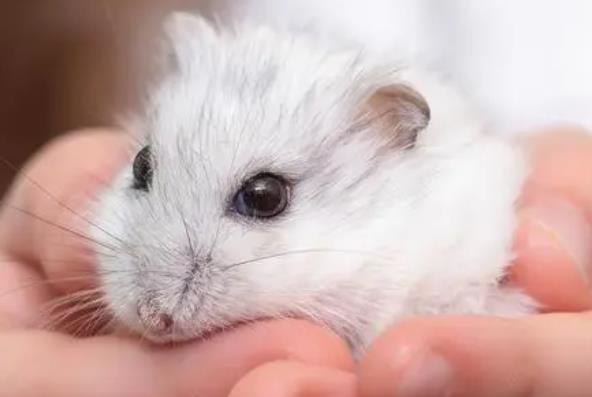The reasons why hamsters stop eating may include the following:
Adaptation to the New Environment: If a hamster has just arrived in a new environment, it may refuse to eat due to nervousness and fear. Usually, there's no need to worry about this. Just keep the environment quiet and avoid disturbing it, and the hamster will adapt to the new environment within 2 to 3 days.

Fright or Stimulation: After being frightened or stimulated, a hamster may lose its appetite. Usually, it will be okay if you just let it rest quietly by itself. During this period, make sure the hamster's food and water are clean and hygienic to avoid getting sick.
Illness: When a hamster catches a cold, gets an intestinal disease, has internal parasites, suffers from hypoglycemia or gets injured with a broken bone, it will also show symptoms of lethargy and refusing to eat or drink. You need to observe whether there are any abnormal symptoms such as diarrhea or abnormal walking posture, and take the hamster to a pet hospital in a timely manner.
Hot Weather: Hamsters have poor heat dissipation ability. When the weather is hot, they are prone to symptoms of loss of appetite and lethargy. In summer, pay attention to taking measures to prevent heatstroke. Place the cage in a cool and well-ventilated place and provide sufficient drinking water.
Age Issue: As hamsters get older, their appetites will become smaller and they will eat less and less. Elderly hamsters are especially prone to losing their appetites.
Food Problem: If the food has gone bad or the hamster doesn't like it, it can also lead to a loss of appetite. You can try changing the food or offering the hamster's favorite snacks to encourage it to eat.
In Heat: Hamsters may have a poor appetite during their estrus period, but their mental state is usually good. Usually, there's no need to worry about this. The appetite will return to normal after the estrus period.
Countermeasures:
Keep the Environment Quiet: Avoid disturbing the hamster frequently so that it has enough time to adapt to the new environment or regain calmness.
Provide Clean Food and Water: Make sure the food is fresh and avoid spoilage.
Observe the Health Condition: Pay attention to whether the hamster has any other abnormal symptoms such as diarrhea or abnormal walking posture, and take it to see a veterinarian in a timely manner.
Prevent Heatstroke: In summer, pay attention to preventing heatstroke. Place the cage in a cool and well-ventilated place and provide sufficient drinking water.
Change the Food: Try offering the hamster's favorite food or changing the food brand.
Pay Attention to Age and In Heat: For elderly hamsters and those in the estrus period, appropriately adjust their diets and living environments.
By using the above methods, you can effectively deal with the situation where hamsters stop eating and ensure their health.
